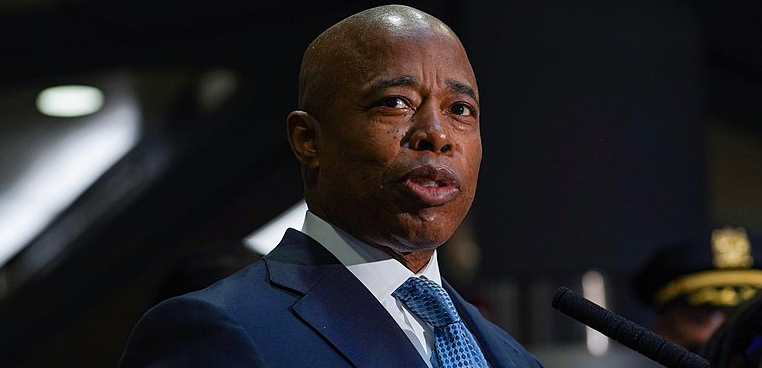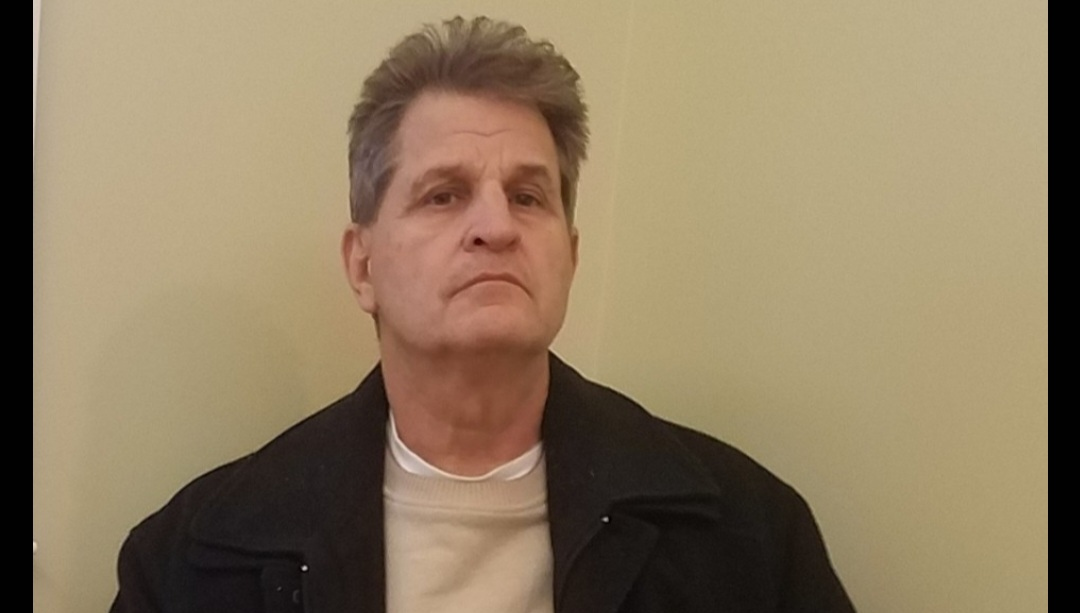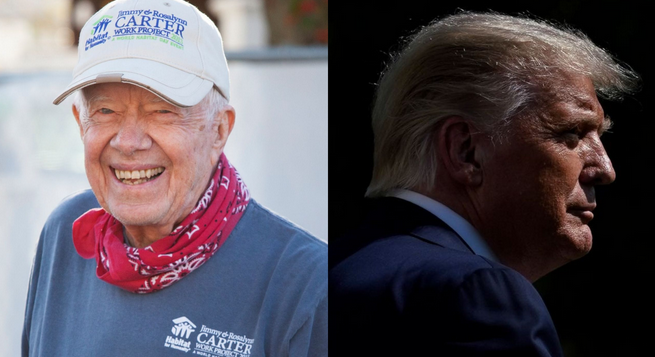The conviction of Theodore Edgecomb for the 2020 road rage killing of Jason Cleereman gives us yet another example, in Black and white, of how American racism contradicts the notion of this nation’s justice system being color-blind.
Some will scoff at the idea that racism was at play in this case–particularly since five Black people were on the jury which found Edgecomb guilty of first degree reckless homicide for killing Cleereman, a prominent white immigration lawyer in the Milwaukee area. Edgecomb now faces upwards of sixty years in prison.
But, all things being the same, if Edgecomb was white, and Cleereman Black, Edgecomb would likely be home free now, like Kyle Rittenhouse.
With good reason, many have likened the Edgecomb trial to that of Rittenhouse. Of course, there are differences in the particulars, but the similarities–especially, as it relates to both saying they shot, and killed, in self- defense–are important.
Right away, we can say two things here that may seem in conflict with one another. First, Theodore Edgecomb was his own worst enemy on the witness stand, and helped to secure his own conviction with his bizarre testimony–unlike Rittenhouse, who was a crying smooth tongue murderous liar.
Second, if Edgecomb was a white defendant some of the egregious conduct that happened in this case, coming from the bench–by the irritable, biased, and bullying judge would not have occurred. At every turn, Judge David Borowski did everything he could to undermine the Edgecomb defense team, including seeking every opportunity to disparage Edgecomb’s lead Black attorney B’Ivory LaMarr.
Judge Borowski was nearly as horrible as Rittenhouse Judge Bruce Schroeder. Borowski used a similar malicious trial tactic like Schroeder: he sent clear signals to the jury that he didn’t like the defendant or his primary lawyer LaMarr. Repeatedly, when sustaining objections against LaMarr he would do so dramatically, and loudly, while making sarcastic snide and prejudicial remarks.
For example, at one point when the defense was objecting to a line of questioning by the prosecution the good Judge Borowski said this: “Mr. LaMarr, again, tried to imply that the police officers were not doing their job. Had Mr. Edgecomb stayed there, he could have said this is what happened.”
Here Borowski is not only impugning Edgecomb–insinuating that his leaving the crime scene was an act of guilt–but he is again attacking defense lawyer LaMarr. And Judge Borowski kept doing this, throughout the trial, in the presence of the jury.
Remember all those legal analysts who defended Judge Schroeder for disallowing the dead victims of Kyle Rittenhouse to be called victims because it would be “too prejudicial?” Why haven’t we heard denunciations of Judge Borowski for saying Cleereman could be referred to as a victim? Why is there a different standard here, in a similar case, in the same damn state of Wisconsin?
In the Rittenhouse case, Judge Schroeder, in his supposedly infinite wisdom, ruled that the trigger-happy comments used by Rittenhouse ,just weeks before he killed two people, could not be introduced in the trial. Rittenhouse was alleged to have said “Bro, I wish I had my fucking AR. I’d start shooting rounds at them.” The “them” being people who were allegedly looting a CVS.
However, in the Edgecomb trial, Judge Borowski decided it wasn’t too prejudicial to allow the prior convictions of Edgecomb to be allowed in the trial. He then hypocritically stated, during jury instructions, that those priors should not be used against the defendant. If so, why allow jurors to hear about his priors to begin with–especially, since those crimes were not of a similar nature as the one Edgecomb was standing trial for here?
One lesson, from both of these cases, is this: both judges, Borowski and Schroeder prejudiced the verdicts from the bench. Both sent clear messages about whose side they favored. In the Rittenhouse case, Judge Schroeder’s rulings, and attacks against the prosecution, tipped the so-called scales of justice to benefit Rittenhouse.
Judge Borowski functioned in the same way, except in the Edgecomb case he did it for the prosecution against this Black man, who dared to take the life of a white man, and a member of the bar to boot, since Cleereman was a lawyer.
Let’s be clear about this: if Theodore Edgecomb’s killing of Jason Cleereman isn’t self-defense under the law, then Kyle Rittenhouse should’ve been found guilty of killing Anthony Huber and Joseph Rosenbaum.
As many African-Americans have already pointed out, if Rittenhouse was Black–assuming he wasn’t shot down dead by police on the streets of Kenosha–he would be sitting in a prison cell now. Rittenhouse was underage when he took his AR, to another state, where volatile protests were taking place, and, predictably, killed two people with a gun that he couldn’t purchase because of his age.
Now, prosecutors alleged that Edgecomb started the altercation by punching Cleereman, when he was sitting with his wife in their car. They dispute Edgecomb’s allegation that what really started everything was his assertion that the Cleeremans’ hit his bike with their car. The prosecution never bothered to give a reason for why Edgecomb would chase them down with his bike, and then punch Cleereman, who was sitting in the passenger side of the car. Edgecomb said the punch was preceded by racial slurs being thrown at him by Jason Cleereman.
Many will continue to dispute whose version of events precipitated this deadly confrontation. However, even if we don’t know for sure what started this, we can safely say the verdict against Edgecomb was an unjust one coming from the same state that just freed Rittenhouse.
For, regardless of what we don’t know we do know several essential facts supporting the self-defense arguments of Edgecomb. We know the Cleeremans chased down Edgecomb, after he biked away from them. We have the video of them speeding around a corner, driving into the bike lane where Edgecomb was bicycling, so Jason Cleereman could get out of the car to pursue Edgecomb–just before Cleereman was killed with a single shot.
Defense attorney LaMarr was brilliantly able to illustrated that the Cleermans were the aggressors, in those moments, just before the fatal shot was fired. LaMarr pointed out that instead of driving home, Jason Cleereman’s wife engaged in a car chase down of Edgecomb.
Now many are using Edgecomb’s disastrous testimony to imply the verdict outcome was fair. One particular thing being seized upon is Edgecomb’s inarticulate testimony saying that the gun “just went off.” This was used against Edgecomb to say he was implying the shooting was accidental. This, some so-called legal experts tell us, supposedly, means the shooting can’t then be also characterized as self-defense.
Why couldn’t Edgecomb have been seeking to defend himself, but in the adrenalin rush heat of the moment, accidentally discharge that single shot? Is that really so weird to visualize? Isn’t it also possible he only pulled the gun to scare Cleereman?
Ironically, Edgecomb should also blame himself: for helping this racist justice system convict him. He did not represent himself well on the witness stand. He was better off not testifying.
Besides his rambling testimony, he was transparently evasive on too many questions. Along with the biased bully behavior of Judge David Borowski, Edgecomb’s conviction was secure.
Another thing here. Many will use Theodore Edgecomb’s damaging testimony, as well as his rap sheet, against him–and will gloss over the systemic injustices that his case highlights. Shouldn’t we expect the justice system to work fairly for all, even for those who might not be the most likeable defendant?
The fact that Theodore Edgecomb was convicted in the same state where Kyle Rittenhouse was just freed tell us much, in Black and white, about the racist institutional injustice that is prevalent in America’s “justice” system.








